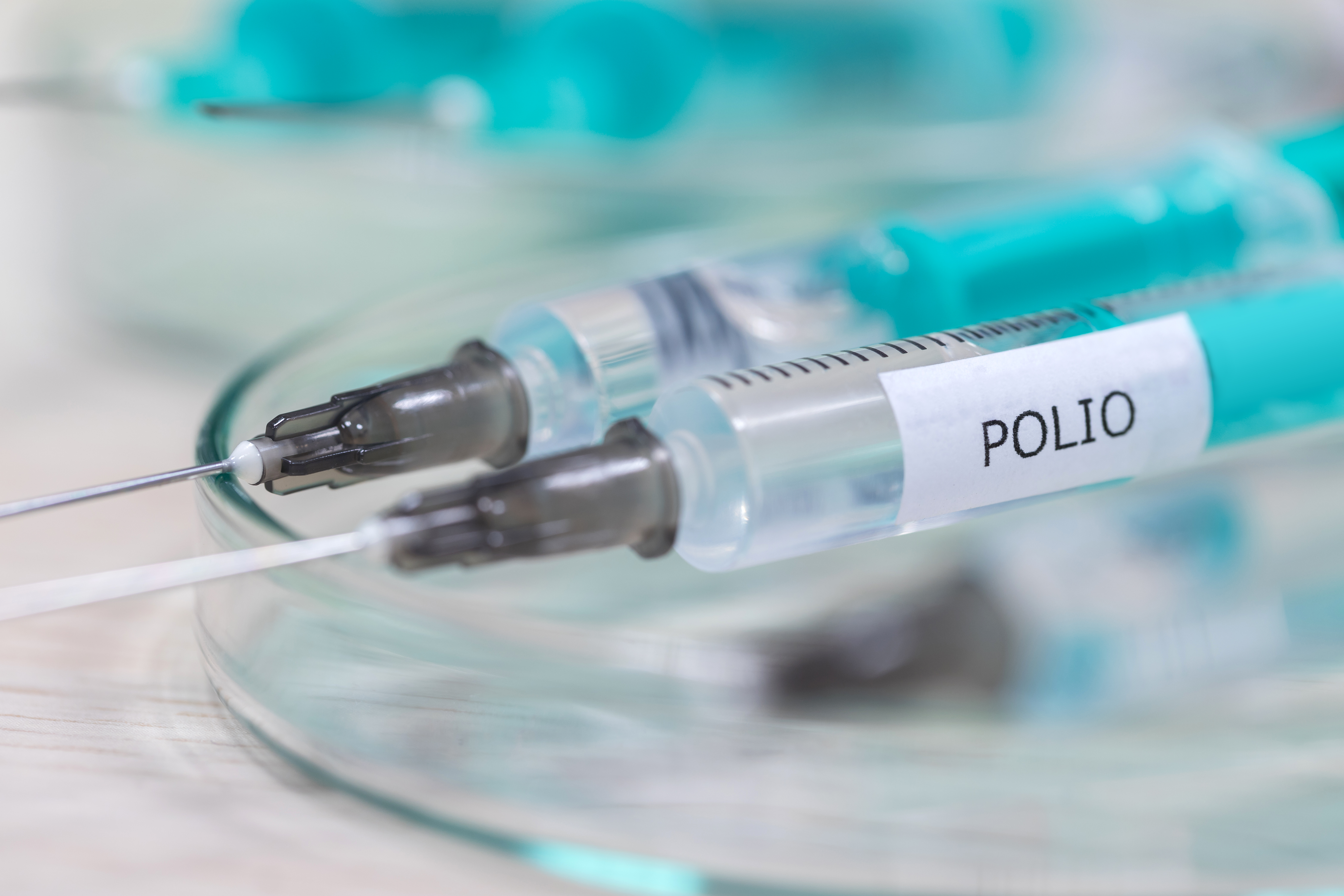Polio virus found in wastewater sample in NYC, health officials urge residents to get vaccinated


A free daily email with the biggest news stories of the day – and the best features from TheWeek.com
You are now subscribed
Your newsletter sign-up was successful
A highly infectious, life-threatening disease that was eradicated from the U.S. in 1979 was recently discovered in wastewater samples in New York. Health officials said there was a confirmed case of the poliovirus in a Rockland County, just north of New York City, The Guardian reports.
The New York State Department of Health collected a sample of the infected wastewater in June, meaning that "the virus was present in the community before the Rockland County adult's diagnosis was made public on 21 July," The Guardian added. The department said that "when samples such as these are identified, it raises concerns about the potential of community spread," Reuters notes.
The U.S. Centers for Disease Control and Prevention announced in an email that it was not yet clear if the virus was actively spreading across New York or in other states, and "no new cases have been identified." However, officials are still urging residents to get vaccinated, "given how quickly polio can spread," said New York state health commissioner Dr. Mary Bassett.
The Week
Escape your echo chamber. Get the facts behind the news, plus analysis from multiple perspectives.

Sign up for The Week's Free Newsletters
From our morning news briefing to a weekly Good News Newsletter, get the best of The Week delivered directly to your inbox.
From our morning news briefing to a weekly Good News Newsletter, get the best of The Week delivered directly to your inbox.
Polio is known for causing irreversible paralysis and anyone can get it regardless of age, but the majority of individuals affected are children ages 3 and younger.
The CDC said that laboratory tests confirmed the strain was genetically linked to one found in Israel and samples of the virus in the United Kingdom.
New York health officials are working to open vaccine clinics for residents to get their Inactivated Polio Vaccine (IPV) — the only vaccine for the virus that has been administered in the U.S. since 2000.
A free daily email with the biggest news stories of the day – and the best features from TheWeek.com
Kelsee Majette has worked as a social media editor at The Week since 2022. In 2019, she got her start in local television as a digital producer and fill-in weather reporter at NTV News. Kelsee also co-produced a lifestyle talk show while working in Nebraska and later transitioned to 13News Now as a digital content producer.
-
 The environmental cost of GLP-1s
The environmental cost of GLP-1sThe explainer Producing the drugs is a dirty process
-
 Greenland’s capital becomes ground zero for the country’s diplomatic straits
Greenland’s capital becomes ground zero for the country’s diplomatic straitsIN THE SPOTLIGHT A flurry of new consular activity in Nuuk shows how important Greenland has become to Europeans’ anxiety about American imperialism
-
 ‘This is something that happens all too often’
‘This is something that happens all too often’Instant Opinion Opinion, comment and editorials of the day
-
 Scientists are worried about amoebas
Scientists are worried about amoebasUnder the radar Small and very mighty
-
 A Nipah virus outbreak in India has brought back Covid-era surveillance
A Nipah virus outbreak in India has brought back Covid-era surveillanceUnder the radar The disease can spread through animals and humans
-
 Trump HHS slashes advised child vaccinations
Trump HHS slashes advised child vaccinationsSpeed Read In a widely condemned move, the CDC will now recommend that children get vaccinated against 11 communicable diseases, not 17
-
 Deaths of children under 5 have gone up for the first time this century
Deaths of children under 5 have gone up for the first time this centuryUnder the radar Poor funding is the culprit
-
 A fentanyl vaccine may be on the horizon
A fentanyl vaccine may be on the horizonUnder the radar Taking a serious jab at the opioid epidemic
-
 Health: Will Kennedy dismantle U.S. immunization policy?
Health: Will Kennedy dismantle U.S. immunization policy?Feature ‘America’s vaccine playbook is being rewritten by people who don’t believe in them’
-
 More adults are dying before the age of 65
More adults are dying before the age of 65Under the radar The phenomenon is more pronounced in Black and low-income populations
-
 Ultra-processed America
Ultra-processed AmericaFeature Highly processed foods make up most of our diet. Is that so bad?
